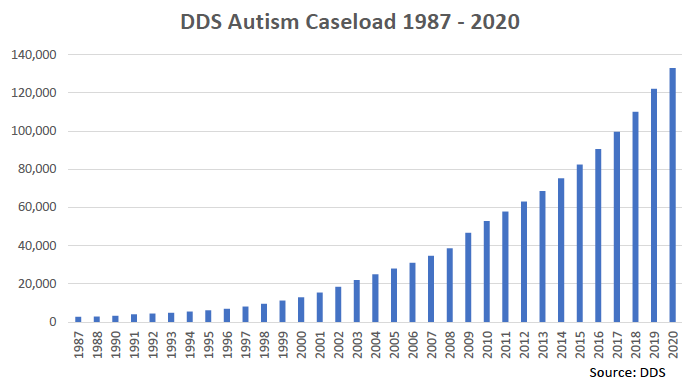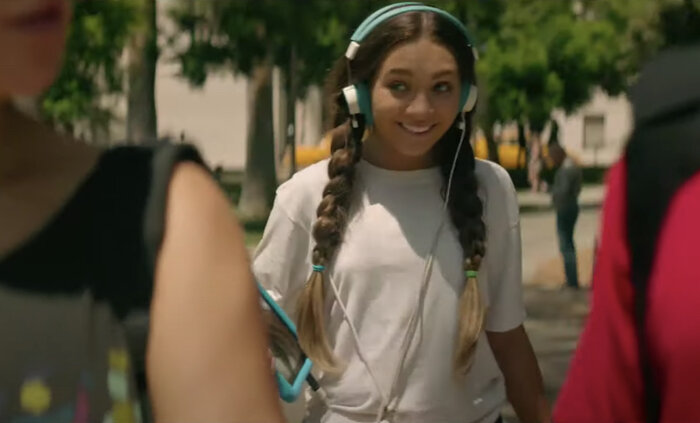By Lucy Kross Wallace
A year ago I was en route to becoming the type of "neurodiversity activist" who cyberbullies autism parents in the name of tolerance.
I had every hallmark of such an activist: a recent ASD diagnosis, a desire to partake in the social justice that surrounded me, irrational self-confidence, ignorance of the more severe end of the autism spectrum, and a Tumblr account.
Clearly, if I’m writing this blog post, a lot has changed since then. While I don’t wish to excuse my former self or the behavior of anyone who harasses parents or trivializes autism, I do want to elucidate a series of cognitive distortions that accelerate radicalization. Eventually, these distortions can motivate extreme behavior, including harassing autism parents online, calling them “MaRtYr MoMmIeS,” and accusing them of wanting to murder their children. Disturbing as these actions are, my experience as a former ideologue shows that there’s a way out of this rabbit hole.
Autism as an Identity
The path toward neurodiversity radicalism begins with the adoption of autism as an identity and the perception that being autistic grants a person authority on all autism-related matters. My slide into this mindset started innocently enough. After years of mental illness and unsuccessful treatment, I finally had a diagnosis that explained my impairments and idiosyncrasies, enabling my doctors to help me transition from psych ward patient to college student. Reading about autism online gave me a vocabulary to describe my experiences and reassurance that I was "different, not less."
But of course, in classic Asperger’s fashion, I took this useful framework to an unhealthy extreme. "Autism is a part of who I am" became "autism is a critical part of who I am," which then became "autism is who I am." I was inspired in particular by the Autistic Self Advocacy Network, whose slogan – "nothing about us without us" – invoked a sense of urgency, suggesting that any failure to insert oneself aggressively into conversations about autism constituted a betrayal of the cause. The motto "autistic people are the real autism experts" appealed to me for the same reason. It offered automatic street cred that I could use however I wanted. Who wouldn’t want to be more knowledgeable than a doctor or parents pouring themselves into care for autistic children simply by virtue of having a certain diagnosis?
Identitarianism Fosters a False Equivalence
Next, due to the concept-creep associated with the word "autism" and the collapse of multiple diagnoses into one autism spectrum category, we suffer an illusion that different people with “autism” have more in common than they actually do. In my dark days of advocacy, I fought fiercely against the notion that my autism was any less severe than anyone else’s, drawing on bizarre, nonsensical analogies I’d found online that equated autism to cupcake flavors and insisted that a single person can be both high- and low-functioning. Of course, these arguments were ridiculous, but admitting that my autism was relatively mild would have forced me to surrender my sense of authority.
Normalization of dysfunction
The radicalization is accelerated by advocates’ stringent adherence to the neurodiversity tenet that autism is "natural" and "normal." This argument constitutes a logical fallacy and immediately crumples upon close examination, as autism is no more natural than earthquakes, syphilis, wildfires, or dementia. Moreover, the research literature strongly suggests that autism has abnormal physiological roots beginning early in brain development.
The “natural” argument is much easier to make for those with milder autism, where it may indeed be the case that stigma overshadows intrinsic impairments. For instance, there is substantial evidence to suggest that when high-functioning autistic girls "camouflage" and attempt to fit in with their peers, they run the risk of developing mental illness. This predicament highlights the importance of acceptance, rather than attempting to "fix" autism, for some people on the spectrum. It would be erroneous to overgeneralize this conclusion, but this is precisely what neurodiversity advocates do.
The fallacy of mutual exclusion
While there may be no one exemplar for neurological health, some people are clearly impaired. We can respect and love people with disabilities while hoping to remedy their impairments whenever possible. And we can fight discrimination without downplaying the value of prevention and medical intervention. Both concepts can and should exist simultaneously; they are not mutually exclusive.
Negative filtering
On Tumblr, my fellow activists and I complained endlessly about instances of "ableism," neglecting the enormous strides our society has made in accessibility and inclusion over recent decades. Negative filtering is also evident when neurodiversity advocates scorn "autism warrior parents" whose experiences are dismissed the moment they question neurodiversity doctrine.
There is also routine discounting of the positives (e.g., the parent’s love for their child), and routine catastrophizing, for example, claiming that a negative comment about autism will somehow result in a parent (no matter how devoted and loving) wishing to abuse or even murder their child. When the activist goes on to harass the parent, she genuinely believes that she is speaking out against an enormous injustice and that "silence is compliance."
Black-and-white thinking
Neurodiversity devotees tend to favor dichotomous thinking over nuance. On multiple occasions, I began reading articles on autism, only to shudder the moment I noticed a phrase like "affected by autism" or "living with autism." I had internalized the neurodiversity preoccupation with language so thoroughly that these innocent words were enough to make me discard an entire article, deciding that its contents were irredeemably bigoted. These rigid judgments fed into my belief that the world was composed of good people and ableists, matching the “you’re either with us or against us” attitude that characterizes the neurodiversity movement.
Personalization
I immediately connected conversations about autism to my own experience, never missing a chance to pipe in with my (often uninformed) opinion. This distortion plays a significant role in the harassment of autism parents: thanks to the neurodiversity movement’s obsession with language, a parent’s use of perfectly reasonable terms like “suffering from autism” or “severely autistic” are taken as personal insults, met with a self-referential chorus of “what about me?” Advocates concern themselves only with their own identities and needs, rejecting realities of severe autism that could sully their preferred portrait of the disorder. In other words, they see themselves as victims of phrases that were never meant to apply to them.
Out the Other Side
Ultimately, I was driven away from neurodiversity not by its positions but by its attitude/actions toward detractors. As I explored various criticisms of neurodiversity, I was struck by advocates’ refusal to acknowledge these concerns and by the vitriol hurled at critics.
The turning point came when I read two scathing responses to Jonathan Mitchell’s eminently reasonable criticism of the neurodiversity movement. The author of the first response mocks Mitchell’s struggles to navigate dating ("Perhaps if he’d stop making sexist remarks and would stop talking…about smearing feces, he’d have better luck with women") and intimates that Mitchell is responsible for his own unhappiness ("He is focused on something that will never happen [i.e., an autism cure]"). The second response, by a writer using the ironic pseudonym "Humble Aspie," begins with a clumsily photoshopped parody of a 1936 Nazi propaganda poster. Aspire to being a pure bred aryan [sic] winner? the caption reads. Join Self Loathing Autistic People #autisticdarkweb. Needless to say, this appalling attempt at satire trivializes the atrocities of the Holocaust and confirms Mitchell’s observation that neurodiversity proponents "are frequently less than cordial to those who disagree with them" – to put it mildly.
I didn’t end up reading the rest of "Humble Aspie’s" article. Instead, I slammed my laptop shut and decided that my neurodiversity days were over. If your version of justice involves cyberbullying and slander, count me out.
The Way Forward
While certain advocates have demonstrated cruel and egregious animosity toward neurodiversity dissidents, I suspect that most #ActuallyAutistic internet users would never be so vicious toward victims in real life. Social media distances us from one another, allowing us to see others as avatars for ideology rather than human beings. Much of the support for the hatred of "autism warrior parents" is tacit: casually liking a Tumblr post or a tweet, reblogging the occasional sarcastic meme, passively buying into stereotyped depictions of "curebie moms." These decisions’ apparent smallness belies their cumulative effect, making it easy for internet users to worsen the problem of bullying without grasping the consequences of their actions.
Meanwhile, those who genuinely oppose the neurodiversity doctrine may be reluctant to speak out for fear of being harassed and abused. There is no alternative to neurodiversity that offers the same instant friends, prepackaged identity, expert branding, trending hashtags, catchy slogans, appealing merchandise, and support from popular media outlets. This renders opposition to the movement virtually invisible, discouraging open criticism.
I see three crucial components of working toward change. First, we need condemnation of this bullying on a much broader scale. Leading advocacy organizations and responsible clinicians, providers, and researchers must take a firmer stance against anti-parent bullying. Explicitly stating that harassment is unacceptable should be a no-brainer.
Second, activists should engage in self-reflection and demonstrate the same awareness that they demand from others. My propensity for rigid thinking and hyperfixation contributed to my neurodiversity obsession. Once I recognized this and challenged my rigid thought patterns, I developed a much more balanced mindset, gained empathy for families and individuals affected by severe autism, and stopped wasting time on pointless quarrels about language.
Finally, I think that much of neurodiversity radicalism lies in fear – fear of stigma, fear of discrimination, and fear of being overlooked. I didn’t get the help I needed for years because doctors assumed that because my autism was mild, I should be able to manage on my own. It wasn’t until I became severely ill that anyone paid serious attention to my diagnosis. But as the National Council on Severe Autism has stated in its FAQs, the reality of low-functioning autism doesn’t mean that high-functioning autistics don’t deserve support or don’t have a real disability. This is not a competition, and when we treat it like one, everybody loses.
Lucy Kross Wallace is an undergraduate student at Stanford University.
Disclaimer: Blogposts on the NCSA blog represent the opinions of the individual authors and not necessarily the views or positions of the NCSA or its board of directors.











![A series of cognitive distortions leads to the excesses of neurodiversity radicalism, including parent shaming, writes the author. [Stock photo of funhouse mirrors]](https://images.squarespace-cdn.com/content/v1/5a43f3acf9a61e04cdd465e7/1613258580594-KLQ1MEKUWC78K1O59VHD/Funhouse%2Bmirrors.jpg)
